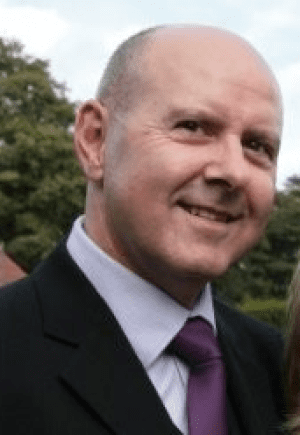Martin Driscoll is the CEO of Dyacare, a company that provides global access to sustainable solutions for crop nutrition and health, soil conditioners and marine based bio-stimulants.
What led you to follow your chosen career?
Coming from a farming background and growing up within a rural community on the Isle of Wight, I learnt from an early stage of life that it is better to work with nature than against it.
We have all seen the variability of crop quality, health and yield across seemingly similar soil types and measured levels of available plant nutrients. So, I was driven to find out what else was going on, and why farmers did not see totally homogenous crop maturity across the same field at harvest.
I learnt that the answer lies within the genetic triggers in every plant, which are affected by many more factors than simply applications of Nitrogen (N), Phosphate (P) or Potassium (K) fertilisers. Invariably, solutions to these problems are achieved through understanding the biology of plants and what happens at differing stages of their development.
So how did that lead to your belief in the properties of seaweed?
It was during this time of research and investigation that I had the good fortune to be introduced to the wide-ranging benefits of seaweed extracts. Extracts derived from seaweed, have been used in agriculture for centuries. Fresh seaweed would be gathered from the shoreline and composted as a soil improver to be ploughed into the soil. In more recent times foliar applied seaweed extracts have provided a host of benefits including improved germination of seeds, greater establishment of young advantageous roots, homogenous flowering, higher resistance to biotic and abiotic stress, and improved crop health and yield.
How has agriculture changed during your own career?
Throughout the 80s, 90s and until recently, the emphasis for crop health and yield has relied on mainly chemical solutions for crop protection and nutrition. Over the past decades, while farm incomes have been reduced, and so has the spend on crop inputs. When agricultural staffing levels were reduced, soil quality suffered as farm machinery became larger and heavier, with frugal crop nutrition and outsourced crop management creating a reliance on chemical solutions, and a loss of local knowledge.
Today however, there is a greater media awareness, leading to a revival of knowledge within the farming community, and calls for more sustainable solutions. These are needed to help reduce carbon emissions, and to provide holistic programmes that do not harm the soil, the plant, or the local ecology.
What do you think will be the biggest change in the next few years?
Crop protection companies are moving toward natural, biological solutions to protect against pests and disease, and many farmers and growers are now using biostimulants and micro molecules to limit plant losses. Similarly, crop nutrition providers are also adding biostimulants to their formulations to help redress stress induced deficiencies and to support the assimilation of soil nutrients to optimise crop yield potential.
What advice would you give to anyone starting their career?
I have discovered that one of the hardest yet most satisfying skills in life, was the ability to take something that was already accepted as good and make it even better!
What would you like to be remembered for?
With more than three decades of advising on crop nutrition and soil health, I have strived to source innovative sustainable solutions that bring reliable results and real financial benefits to farmers, growers and the wider agricultural industry.
The Dyacare group was formed to create, source, and globally promote low carbon and sustainable crop solutions for growers need throughout the globe. Its Chinese business turns over more than $50m USD on a B2C basis. The UK company offers a platform for Asian manufacturers to access European markets, and for European manufacturers to access the Asian markets, while the Irish company focuses on the research, development and manufacture of seaweed-based biostimulants.
If you have any questions about CHAP, our Membership Scheme, or are interested in working with us on a specific project, then please send us an email at enquiries@chap-solutions.co.uk
Please note, the opinions expressed in this article are the author’s own and do not necessarily reflect the views or opinions of CHAP.












